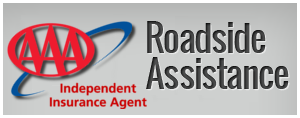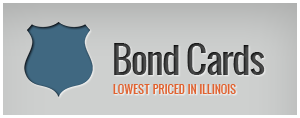Auto insurance is confusing. There are many different coverage’s available and each one only protects you in a specific situation. It is important to know what you are protected from and what is required by law. This guide will explain everything you need to know about car insurance in Illinois.
Legally required auto insurance in Illinois
Illinois law requires the owner of a car to have a minimum amount of liability insurance (liability coverage). If you get pulled over or get into an accident, this is what you need…
- Bodily Injury (BI)– pays for costs due to injury or death that you, the covered driver, cause to passengers in another car or pedestrians in the event of an accident. The minimum required limits for BI are $20,000 per person injured and $40,000 total per accident
- Property Damage (PD)– pays for damage to another person’s car or property like a fence, street sign, buildings, etc that is damaged in an accident. The minimum required limit for PD are $15,000 per accident
- Uninsured Motorist Bodily Injury (UM)– covers bodily injury costs that happen to you caused by a hit-and-run driver or if the person that hits you does not have insurance. Depending on where you live in Illinois, the number of uninsured drivers could be as high as 1 out of every 4 cars! The minimum required limits for UM are $20,000 per person and $40,000 total per accident
Together, Bodily Injury (BI) and Property Damage (PD) form your Liability Coverage. Uninsured Motorist Bodily Injury (UM) is an additional coverage required by law. When an agent says ‘Liability Only’ they most likely mean BI and PD… and the State Required Coverage = BI + PD + UM.
Other Coverage That May Be Required
Physical Damage – If you are financing your car (who isn’t these days!) the lien holder (the bank or whoever is financing your car) will require you to have Physical Damage coverage as well. This pays for damages to your car, but you must first pay the amount of your deductible. Deductibles can either be $250, $500, or $1000… so for example: let’s say your deductible is $500, and the damage to your car costs $2000 to fix. You pay the first $500 and your insurance pays for the remaining $1500. The higher the deductible you choose, the less you have to pay for that coverage… so Physical Damage coverage with a $250 deductible will cost more than the same coverage with a $1000 deductible. Physical Damage is split into two coverages, Comprehensive and Collision.
Collision- pays for damage caused by an accident with another car or a fixed object, like a tree.
Comprehensive- pays for damage to your car than does NOT involve a collision with another car. It does cover theft, vandalism, breakage of glass, wind, water damage, hail, and damage caused by an animal.

Damage by wind could include a windstorm that causes a tree to smash your car in your driveway.

Ace Ventura decided he didn’t need physical damage coverage. But then again, I guess he doesn’t mind hanging his head out the window like a dog.
Or take Tommy Boy for example… Richard wouldn’t be stuck driving a permanent convertible, because the damage caused by deerzilla would be covered.
The Deer Wakes Up
Tommy Boy
— MOVIECLIPS.com
Optional Coverages
These coverages may be purchased in addition to the required coverages.
- Medical Payments- pays for medical and funeral expenses if you or your passengers are injured or killed in an accident. It also covers you and your family members if hit by a car while walking or while riding in another car. Medical payments pay even if you cause the accident.
- Uninsured Motorist Property Damage- pays for damage to your car if you are hit by an uninsured, at-fault, and identifiable driver. Can’t have this coverage if you have Collision. It will pay a maximum of $15,000 and is subject to a $250 deductible.
- Rental Reimbursement- pays a certain amount per day for you to rent a vehicle while yours is being repaired for a covered loss.
- Towing- pays for either all or part of the cost to tow your disabled car to a repair shop.
- Emergency Roadside Service- 24 hour service for emergency road service, delivery of supplies (fuel, oil, etc.), battery service, tire change, mechanical breakdown, and towing
- Bond Cards- presenting a bond card to an officer during a traffic stop will allow you to keep your license.
Now that you know what the different coverages mean, let us give you a free quote and show you how affordable a policy can be. It takes less than a minute. You won’t regret it.
-John





